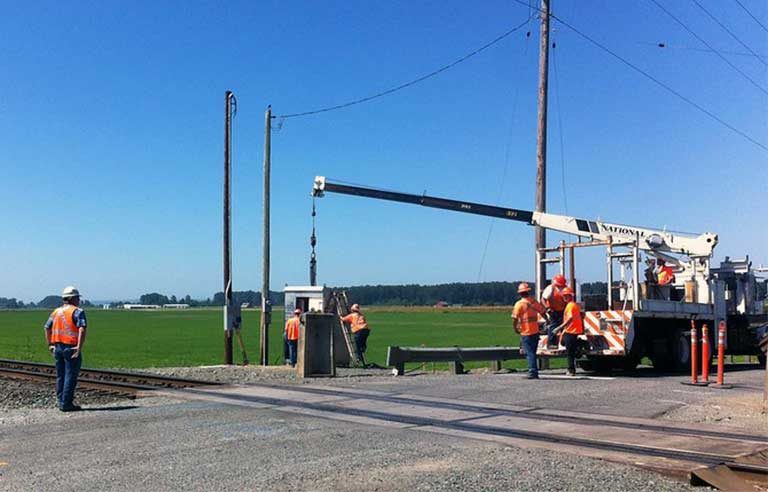Cranes and derricks in railroad roadway work: OSHA clarifies final rule; lists exemptions

Washington — OSHA is providing specific exemptions and clarifications for railroad roadway work in its Cranes and Derricks in Construction Standard.
According to a final rule published in the Sept. 15 Federal Register, the exemptions and clarifications are intended to “recognize the unique equipment and circumstances in railroad roadway work,” as well as reflect the preemption of OSHA requirements by Federal Railroad Administration regulations, including those for the safe operation of railroad roadway maintenance machines that have cranes or other hoisting devices.
Some of the exemptions apply to flash-butt welding trucks, the use of rail stops and rail clamps, dragging a load sideways, out-of-level work, and boom-hoist limiting devices for hydraulic cylinder-equipped booms. Operator training and certification will follow FRA regulations, OSHA states in a Sept. 14 press release.
This rulemaking culminates a 10-year period that began when the Association of American Railroads and a number of individual railroads filed a petition challenging the Cranes and Derricks in Construction Standard – published in August 2010.
OSHA published a notice of proposed rulemaking in July 2018 after reaching a settlement agreement with those organizations. Nearly a year later, FRA informed OSHA that it intended to preempt many of the requirements in the NPRM.
OSHA states in the rule that “Although any exemption from OSHA requirements resulting from the preemption of OSHA statutory authority by FRA would apply whether or not the OSHA regulations include any specific exemptions, OSHA believes it is still appropriate to amend the Code of Federal Regulations (CFR) to include the explicit exemptions for RMMs in the OSHA crane standard. Having the exemptions specified in the OSHA crane standard will provide additional clarity for employers in the railroad industry, including contractors, who may be unfamiliar with the legal implications of FRA’s action.”
The rule is scheduled to go into effect Nov. 16.
Post a comment to this article
Safety+Health welcomes comments that promote respectful dialogue. Please stay on topic. Comments that contain personal attacks, profanity or abusive language – or those aggressively promoting products or services – will be removed. We reserve the right to determine which comments violate our comment policy. (Anonymous comments are welcome; merely skip the “name” field in the comment box. An email address is required but will not be included with your comment.)

